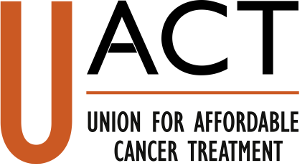On October 1, 2021, the World Health Organization issued a report on the 22nd Model Essential Medicines List (EML). The new list added four new drugs for cancer, including enzalutamide, but also illustrated the role of high prices as a barrier to access. The WHO noted in a press release that:
“A group of antibodies that enhance the immune response to tumour cells, called PD-1 / PD-L1 immune-checkpoint inhibitors, were not recommended for listing for the treatment of a number of lung cancers, despite being effective, mainly because of their exceedingly high price and concerns that they are difficult to manage in low-resourced health systems. Other cancer medicines were not recommended for listing due to uncertain additional clinical benefit compared with already listed medicines, high price, and management issues in low-resource settings. These included osimertinib for lung cancer, daratumumab for multiple myeloma, and three types of treatment (CDK4/6 inhibitors, fulvestrant and pertuzumab) for breast cancer.”
Concerns about the management of treatments in low-resource settings are important, but the WHO also needs to recognize the heterogeneity of medical infrastructures among its members and within countries. If an effective drug such as osimertinib, pertuzumab or pembrolizumab can be used in many countries, or within some locations in a country, the WHO can condition the listing for use in those settings, and if a product is unaffordable, the WHO can condition the list on whether a country implements measures that enable access at affordable prices.
UACT strongly supports the proposal to create, “a standing EML Working Group to support the Expert Committee to provide advice to WHO on policies and rules to make highly priced essential medicines more affordable and accessible,” and UACT notes that this working group should explore all available legal options to address affordability concerns.
